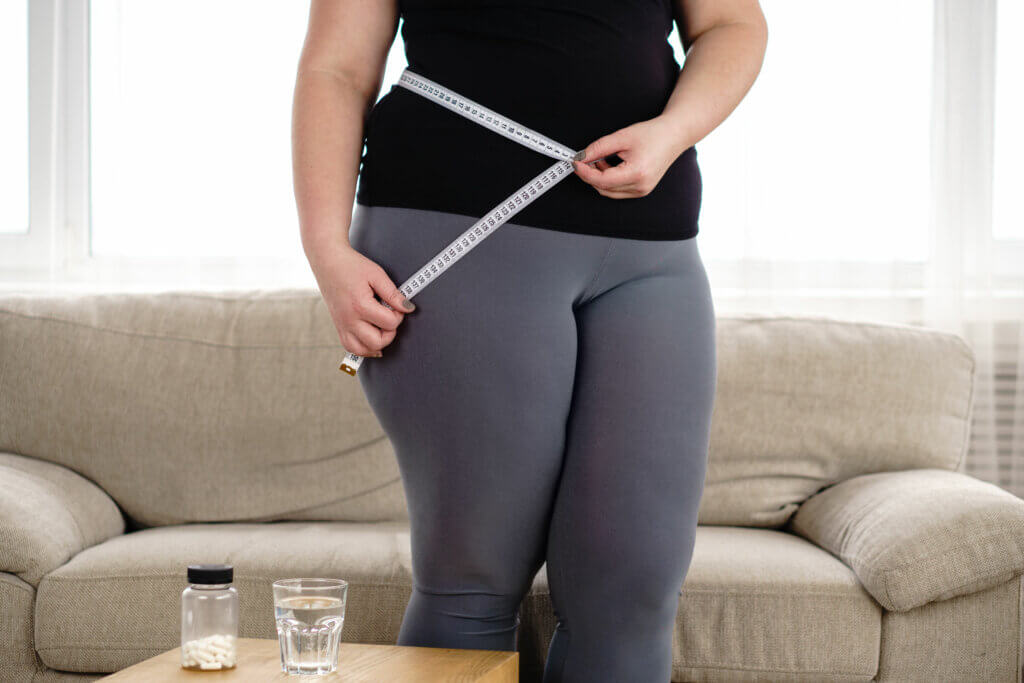What Is Chrononutrition?


Escrito y verificado por el nutricionista Saúl Sánchez
Chrononutrition is the name given to the science that is committed to modifying the timing of meals to achieve health improvements. Depending on the time of day in which the intakes are made, the effects of the nutrients in the body may vary. In this sense, it might be necessary to adjust certain habits to prevent or treat complex pathologies.
The first thing to note is that chrononutrition is still a young science and there is still much to investigate and discover about it.
Timing of ingestion affects nutrient utilization
According to a study published in the journal Nutrients, changing the times of main meals could be linked to a lower risk of metabolic problems. The need to eat and have dinner earlier is proposed in order to obtain benefits, as, in this case, the body’s ability to metabolize simple carbohydrates would be much greater.
There’s also evidence that eating food at night or having dinner late is linked to a higher risk of getting sick from different causes. The propensity to be overweight and obese would increase. This is confirmed by an investigation published in the journal Chronobiology International. For this reason, experts are beginning to recommend that the last meal of the day be eaten before the sun goes down.
According to current knowledge in physiology, when night falls there are a number of changes in hormonal production that increase the impact of carbohydrates on metabolism. Therefore, the intake of these kinds of nutrients at that time should be avoided.
According to a study published in Nutrition & Diabetes, the body’s response to foods high in carbohydrates is much better in the morning than at night. This is useful for people who have already developed a metabolic pathology and also for all sedentary people.
For many years, the need to cut back on carbohydrates at night was considered a myth. However, chrononutrition begins to show that there are a number of strong physiological bases behind this recommendation.
In the case of athletes, the recommendations may vary. If you finish doing intense exercise after the sun has set, the inclusion of complex sugars in your dinner will continue to be decisive to improve your recovery capacity.
Chrononutrition as a tool against obesity
It’s true that changing meal times may not have the same effect on everyone. There’s a genetic determination that must be taken into account. At least 50% of the population responds favorably to this variation in terms of weight loss, but the other half won’t get any benefit.
As it isn’t yet feasible to propose the performance of genetic studies in a generalized way, the only option that remains is to try altering the timing of meals in an environment with an optimized dietary pattern. Improvements are possible.
What seems clear is the impact of meal timing on metabolism. In diabetic patients, chrononutrition can be an important tool to achieve optimal glycemic control, preventing continued insulin resistance. This is evidenced by an investigation published in the journal Diabetología.
For this reason, nowadays more and more professionals are recommending a comprehensive change in habits, not just dietary ones. By assessing customs as a whole and modifying them in an orderly manner, much more consistent progress can be made.

The biological clock is the key
Many of the efforts in the study of chrononutrition are devoted to understanding the functioning of the biological clock. This is determined by the endogenous production of melatonin. Therefore, it’s easy to come to the conclusion that incorrect sleeping habits can generate a significant lack of control.
After all, modulation in melatonin synthesis can determine the production of many other hormones, such as ghrelin and leptin. Both are closely related to the sensation of appetite and to the selection in the use of energy substrates for the genesis of energy.
Therefore, it’s key to concentrate on maintaining good habits, beyond the composition of the diet or the timing of meals. Ensuring 7 or 8 hours of sleep each night will increase the efficiency of metabolic processes, reducing the risk of diabetes. This has been shown in a study published in the Annals of Neurosciences.
Eat earlier and eat better
The timing of meals influences the use of energy substrates and the efficiency of metabolism, but it isn’t the only thing that matters. It’s also necessary to ensure that the diet has good nutritional quality.
Ultra-processed food, for example, concentrates different compounds that could act as hormonal disruptors, affecting the biological clock. At the same time, they provide elements that increase inflammation states, as is the case with trans fatty acids. These are linked to an increased risk of developing complex pathologies, as stated by research published in Diabetes & Metabolic Syndrome.
If a suitable diet is considered, with high nutritional density, and physical exercise is practiced on a daily basis, then you’re well on the right track. From here it only remains to improve the mealtimes. As we have seen, it’s advisable to bring forward mealtimes to avoid eating food late at night. In the case of having to consume nutrients after sunset, proteins and fats should be prioritized.
The shift worker problem
Within the context of chrononutrition, there’s a big problem with those who work shifts. They break all the basic principles set out by this science, due to their working hours.
They sleep during the day and their exposure to sunlight is low, which negatively modifies the concentration of hormones. Vitamin D deficiency is a constant.
In addition, this lack of control of the biological clock causes an increase in appetite during the night hours, with a special preference for foods with a high content of simple sugars. While eating at night is associated with worse health, consuming large amounts of simple carbohydrates is the least advisable.
In these cases, neither nutrition nor chrononutrition accompany. The proposed dietary pattern is of low quality and is consumed at the wrong time. The results are catastrophic in the medium term. The risk of developing obesity, diabetes, and complex pathologies skyrockets.
As a method to cushion these effects, the administration of a melatonin supplement is proposed. With this, the aim is to improve the quality of sleep, even if it’s carried out during the day.

Chrononutrition: an emerging science with a great future
Chrononutrition gains followers over the years. The moment in food is consumed determines its impact on the body.
However, don’t forget that chrononutrition still needs to go a long way. Although certain associations have been found, there are several unknowns in this regard. It isn’t known precisely how changing meal times can affect cancer risk, for example.
In the next few years, it’s likely that new trials will be published in this regard. This will allow you to further adjust the nutritional guideline, enabling it to be more efficient in the prevention of pathologies.
Chrononutrition is the name given to the science that is committed to modifying the timing of meals to achieve health improvements. Depending on the time of day in which the intakes are made, the effects of the nutrients in the body may vary. In this sense, it might be necessary to adjust certain habits to prevent or treat complex pathologies.
The first thing to note is that chrononutrition is still a young science and there is still much to investigate and discover about it.
Timing of ingestion affects nutrient utilization
According to a study published in the journal Nutrients, changing the times of main meals could be linked to a lower risk of metabolic problems. The need to eat and have dinner earlier is proposed in order to obtain benefits, as, in this case, the body’s ability to metabolize simple carbohydrates would be much greater.
There’s also evidence that eating food at night or having dinner late is linked to a higher risk of getting sick from different causes. The propensity to be overweight and obese would increase. This is confirmed by an investigation published in the journal Chronobiology International. For this reason, experts are beginning to recommend that the last meal of the day be eaten before the sun goes down.
According to current knowledge in physiology, when night falls there are a number of changes in hormonal production that increase the impact of carbohydrates on metabolism. Therefore, the intake of these kinds of nutrients at that time should be avoided.
According to a study published in Nutrition & Diabetes, the body’s response to foods high in carbohydrates is much better in the morning than at night. This is useful for people who have already developed a metabolic pathology and also for all sedentary people.
For many years, the need to cut back on carbohydrates at night was considered a myth. However, chrononutrition begins to show that there are a number of strong physiological bases behind this recommendation.
In the case of athletes, the recommendations may vary. If you finish doing intense exercise after the sun has set, the inclusion of complex sugars in your dinner will continue to be decisive to improve your recovery capacity.
Chrononutrition as a tool against obesity
It’s true that changing meal times may not have the same effect on everyone. There’s a genetic determination that must be taken into account. At least 50% of the population responds favorably to this variation in terms of weight loss, but the other half won’t get any benefit.
As it isn’t yet feasible to propose the performance of genetic studies in a generalized way, the only option that remains is to try altering the timing of meals in an environment with an optimized dietary pattern. Improvements are possible.
What seems clear is the impact of meal timing on metabolism. In diabetic patients, chrononutrition can be an important tool to achieve optimal glycemic control, preventing continued insulin resistance. This is evidenced by an investigation published in the journal Diabetología.
For this reason, nowadays more and more professionals are recommending a comprehensive change in habits, not just dietary ones. By assessing customs as a whole and modifying them in an orderly manner, much more consistent progress can be made.

The biological clock is the key
Many of the efforts in the study of chrononutrition are devoted to understanding the functioning of the biological clock. This is determined by the endogenous production of melatonin. Therefore, it’s easy to come to the conclusion that incorrect sleeping habits can generate a significant lack of control.
After all, modulation in melatonin synthesis can determine the production of many other hormones, such as ghrelin and leptin. Both are closely related to the sensation of appetite and to the selection in the use of energy substrates for the genesis of energy.
Therefore, it’s key to concentrate on maintaining good habits, beyond the composition of the diet or the timing of meals. Ensuring 7 or 8 hours of sleep each night will increase the efficiency of metabolic processes, reducing the risk of diabetes. This has been shown in a study published in the Annals of Neurosciences.
Eat earlier and eat better
The timing of meals influences the use of energy substrates and the efficiency of metabolism, but it isn’t the only thing that matters. It’s also necessary to ensure that the diet has good nutritional quality.
Ultra-processed food, for example, concentrates different compounds that could act as hormonal disruptors, affecting the biological clock. At the same time, they provide elements that increase inflammation states, as is the case with trans fatty acids. These are linked to an increased risk of developing complex pathologies, as stated by research published in Diabetes & Metabolic Syndrome.
If a suitable diet is considered, with high nutritional density, and physical exercise is practiced on a daily basis, then you’re well on the right track. From here it only remains to improve the mealtimes. As we have seen, it’s advisable to bring forward mealtimes to avoid eating food late at night. In the case of having to consume nutrients after sunset, proteins and fats should be prioritized.
The shift worker problem
Within the context of chrononutrition, there’s a big problem with those who work shifts. They break all the basic principles set out by this science, due to their working hours.
They sleep during the day and their exposure to sunlight is low, which negatively modifies the concentration of hormones. Vitamin D deficiency is a constant.
In addition, this lack of control of the biological clock causes an increase in appetite during the night hours, with a special preference for foods with a high content of simple sugars. While eating at night is associated with worse health, consuming large amounts of simple carbohydrates is the least advisable.
In these cases, neither nutrition nor chrononutrition accompany. The proposed dietary pattern is of low quality and is consumed at the wrong time. The results are catastrophic in the medium term. The risk of developing obesity, diabetes, and complex pathologies skyrockets.
As a method to cushion these effects, the administration of a melatonin supplement is proposed. With this, the aim is to improve the quality of sleep, even if it’s carried out during the day.

Chrononutrition: an emerging science with a great future
Chrononutrition gains followers over the years. The moment in food is consumed determines its impact on the body.
However, don’t forget that chrononutrition still needs to go a long way. Although certain associations have been found, there are several unknowns in this regard. It isn’t known precisely how changing meal times can affect cancer risk, for example.
In the next few years, it’s likely that new trials will be published in this regard. This will allow you to further adjust the nutritional guideline, enabling it to be more efficient in the prevention of pathologies.
- Lopez-Minguez, J., Gómez-Abellán, P., & Garaulet, M. (2019). Timing of Breakfast, Lunch, and Dinner. Effects on Obesity and Metabolic Risk. Nutrients, 11(11), 2624. https://doi.org/10.3390/nu11112624
- Verd, S., Beiro, S., Fernandez-Bernabeu, M., & Ponce-Taylor, J. (2020). Early dinner or “dinner like a pauper”: Evidence, the habitual time of the largest meal of the day – dinner – is predisposing to severe COVID-19 outcome – death. Chronobiology international, 37(6), 804–808. https://doi.org/10.1080/07420528.2020.1772810
- Hawley, J. A., Sassone-Corsi, P., & Zierath, J. R. (2020). Chrono-nutrition for the prevention and treatment of obesity and type 2 diabetes: from mice to men. Diabetologia, 63(11), 2253–2259. https://doi.org/10.1007/s00125-020-05238-w
- Maity, K., Nagarathna, R., Anand, A., Patil, S. S., Singh, A., Rajesh, S. K., Ramesh, L., Sridhar, P., Thakur, U. K., & Nagendra, H. R. (2020). Sleep Disorders in Individuals With High Risk for Diabetes in Indian Population. Annals of neurosciences, 27(3-4), 183–189. https://doi.org/10.1177/0972753121998470
- Islam, M. A., Amin, M. N., Siddiqui, S. A., Hossain, M. P., Sultana, F., & Kabir, M. R. (2019). Trans fatty acids and lipid profile: A serious risk factor to cardiovascular disease, cancer and diabetes. Diabetes & metabolic syndrome, 13(2), 1643–1647. https://doi.org/10.1016/j.dsx.2019.03.033
- Henry, C. J., Kaur, B., & Quek, R. (2020). Chrononutrition in the management of diabetes. Nutrition & diabetes, 10(1), 6. https://doi.org/10.1038/s41387-020-0109-6
Este texto se ofrece únicamente con propósitos informativos y no reemplaza la consulta con un profesional. Ante dudas, consulta a tu especialista.







